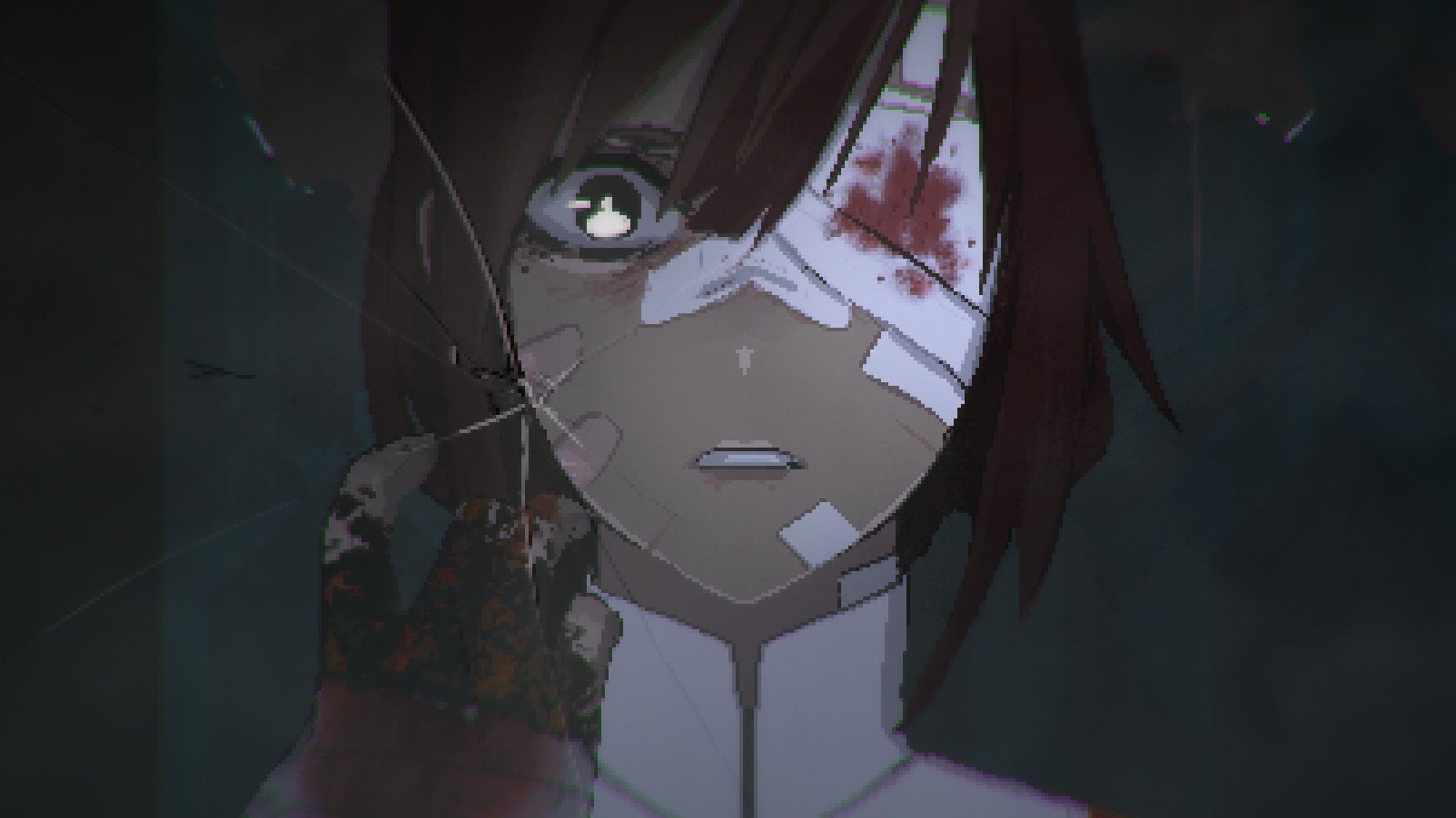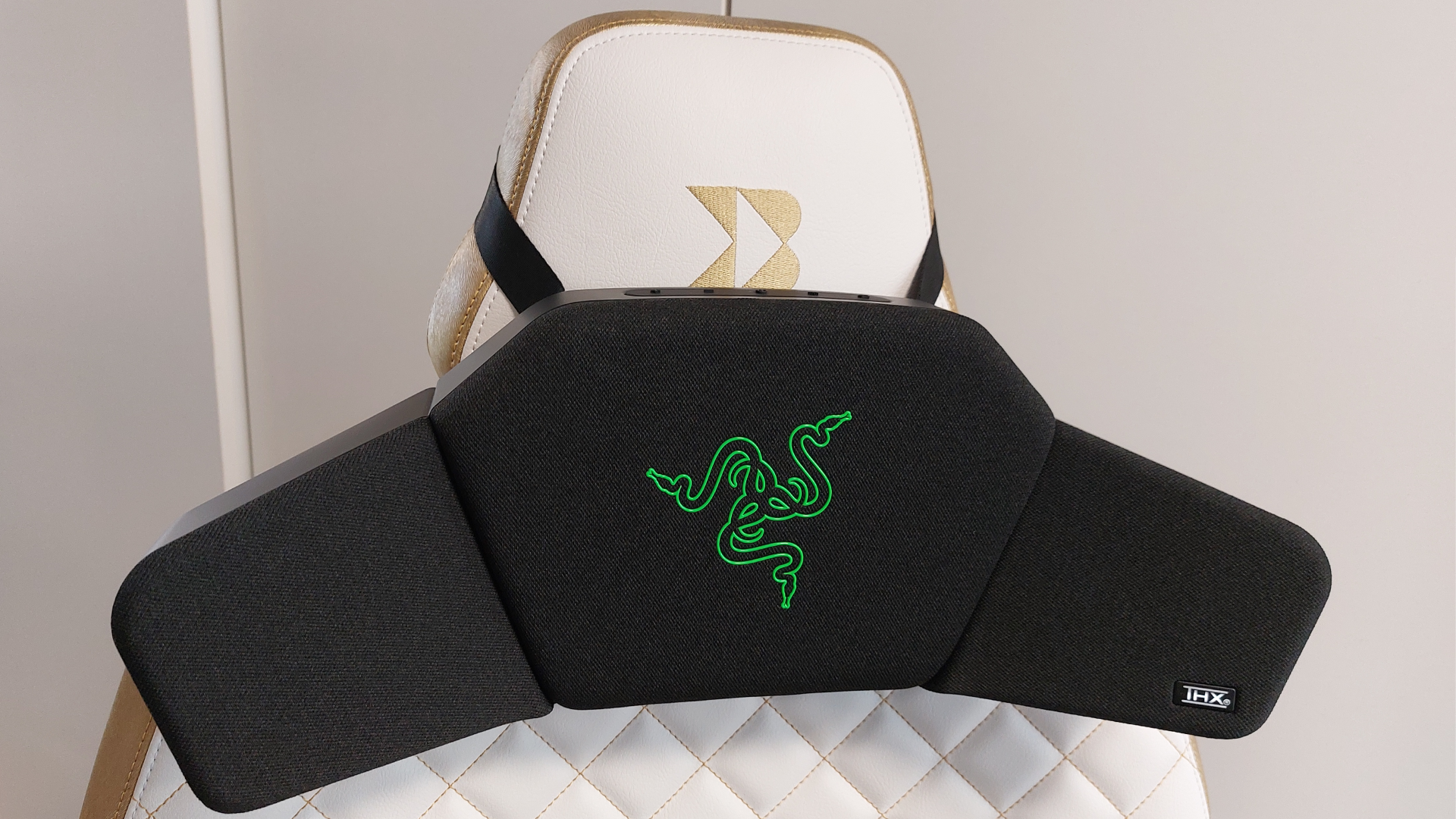Our Verdict
Tense, haunting and beautiful. Inventory shenanigans aside, one of the best survival horror games yet.
PC Gamer's got your back
What Is It?: Psychological sci-fi survival horror inspired by Silent Hill.
Expect To Pay $20/£16
Developer Rose Engine
Publisher Humble Games
Reviewed On Windows 11, Nvidia 2080 Ti, Intel i9-9900k @ 4.9ghz, 32gb RAM
Multiplayer? No
Link Official site
Horror is hard to do right, especially when not relying on cheap, reliable jump-scares. It’s why the original Silent Hill trilogy are regarded as classics, while their many sequels and imitators are largely forgotten. Despite being the debut release from tiny two-person indie studio Rose-Engine, sci-fi horror adventure Signalis joins that coveted pantheon as one of the best in the genre, and a personal favorite from a jam-packed year.
At a glance, Signalis is familiar and accessible (right down to the low-fi PS1-inspired graphics) to anyone who has played a classic-style survival horror game. Played from an overhead perspective, there’s a labyrinth of interconnected rooms to explore, many locked doors, a mixture of logical and more abstract puzzles and an assortment of monsters to shoot. Inventory space is at a premium, healing is finite, and the game can only be saved at safe-rooms where you can stash unused items in a storage chest.
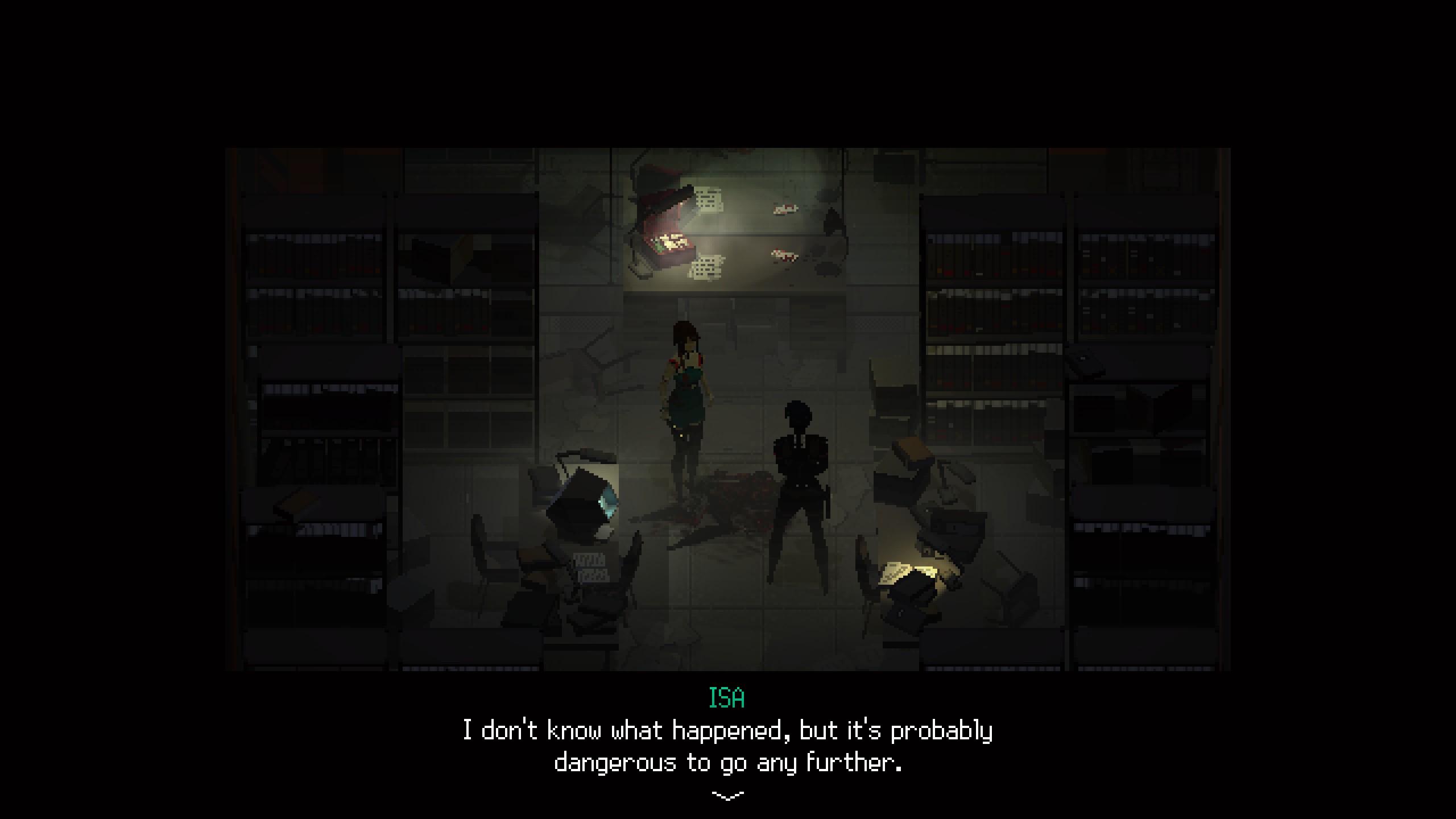
Aesthetically, it feels like a refinement of those PlayStation gems as well. Backdrops are pin-sharp, crisp pixel-art, while characters are smoothly animated 3D models, always clear and readable despite their relatively small size. The UI is similarly sharp, despite its diegetic retro-tech aesthetics, and the map screen is especially good, automatically marking off any door you’ve been near as locked, barred or open. Audio-wise, it channels the best in the business, with some very Akira Yamaoka industrial drones accompanying quieter moments, chaotic, panicked noise kicking in during combat, and an assortment of nostalgic tones, beeps and warbles accompanying menu actions.
It’s old-school survival horror done right. Combat is tense and resource-limited, encouraging evasion and ammo-hoarding. Puzzles are cleverly designed, stalling progress just long enough to deliver a Eureka moment. The only truly unfamiliar mechanical element is the radio tuner. Found early on, it allows you to listen into and decode radio signals. Sometimes just creepy numbers stations, other times key clues to items, and occasionally it even gets used in combat. While not game-redefining, it’s a consistent enough presence to put a refreshing spin on even Signalis’ more familiar systems.
Other elements are borrowed more directly from the Resident Evil 1 remake, including a ‘panic item’ slot for escaping close combat, and a limited supply of incendiaries to burn corpses and permanently clear frequently traveled halls. While most similar to Resident Evil mechanically, its overall atmosphere hews far closer to Silent Hill, telling the story of a lone technician android named Elster descending into metaphorical (and potentially literal) hell in search of her missing co-pilot.
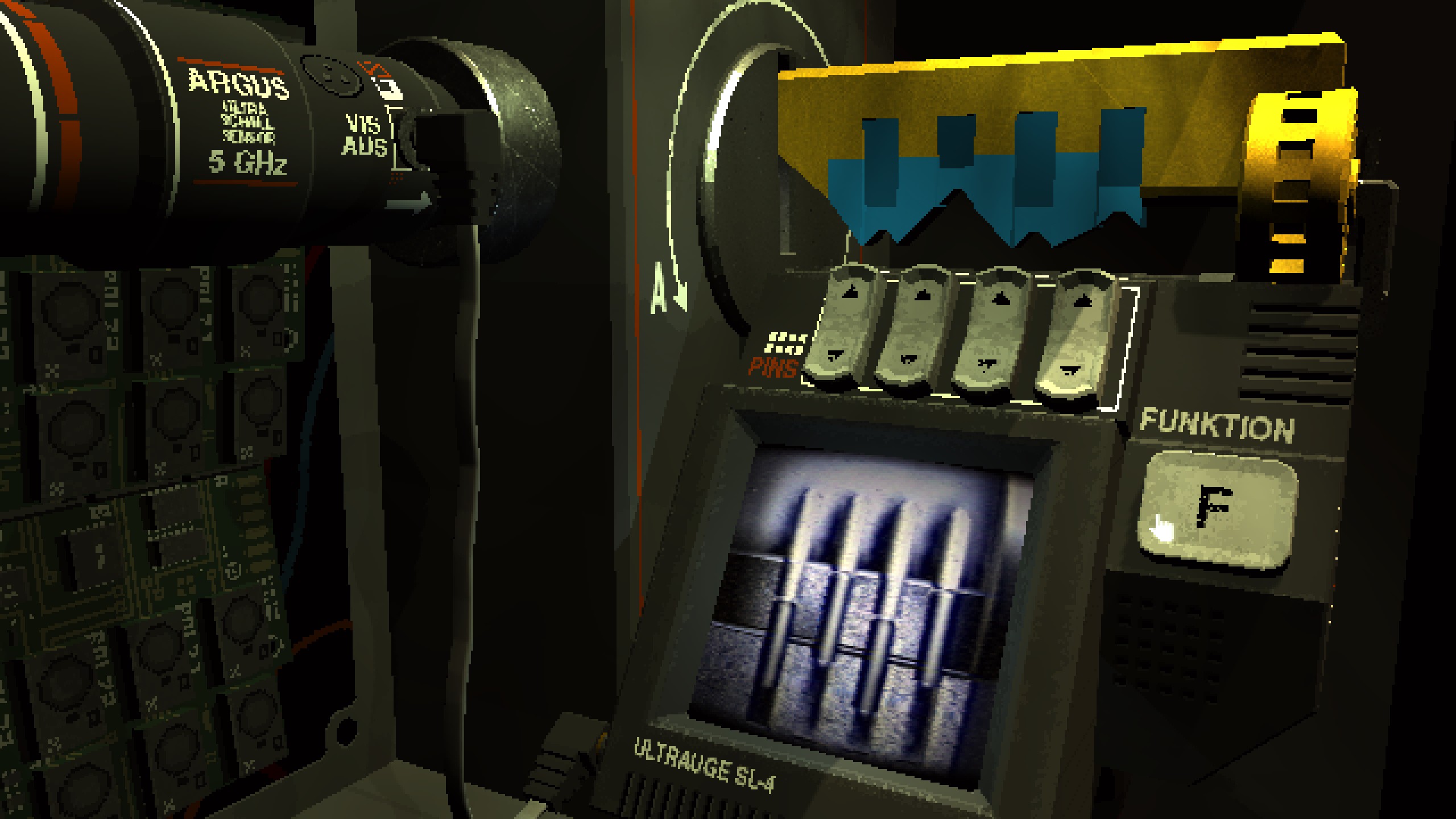
While Signalis trades in familiar sci-fi horror tropes (including an assortment of warped biomechanical creatures to shoot), this is psychological horror at heart. It’s a character-driven and emotionally charged story. An intentionally fragmented and dreamlike downward spiral, following a potentially unreliable narrator—where Elster goes, the player is dragged forcibly along, whether they want to or not.
This is psychological horror at heart. It’s a character-driven and emotionally charged story.
To go into too much detail risks spoiling some surprises, but Signalis eschews sudden, loud scares in favor of making the player feel constantly insecure, from persistent resource scarcity to hard narrative curveballs. Enemies can rise again in once-cleared locations, the game’s perspective may suddenly shift from locked overhead to first-person, and plot twists may carry heavy enough implications to demolish any previously-held understanding of what’s happening.
Machine women with machine minds
So much of why Signalis works hinges on its worldbuilding. While mostly set in an incredibly cursed mining facility on a remote planet, there are dozens of diaries, logs and documents painting a broader and more tragic picture. The universe of Signalis is some alternate, dark timeline where most technology stalled around early ‘90s levels, but strange new sciences allowed the creation of sentient androids (known as Replikas) and interstellar expansion, and a war between a largely-unseen Empire, and the hideously fascistic Eusan nation.
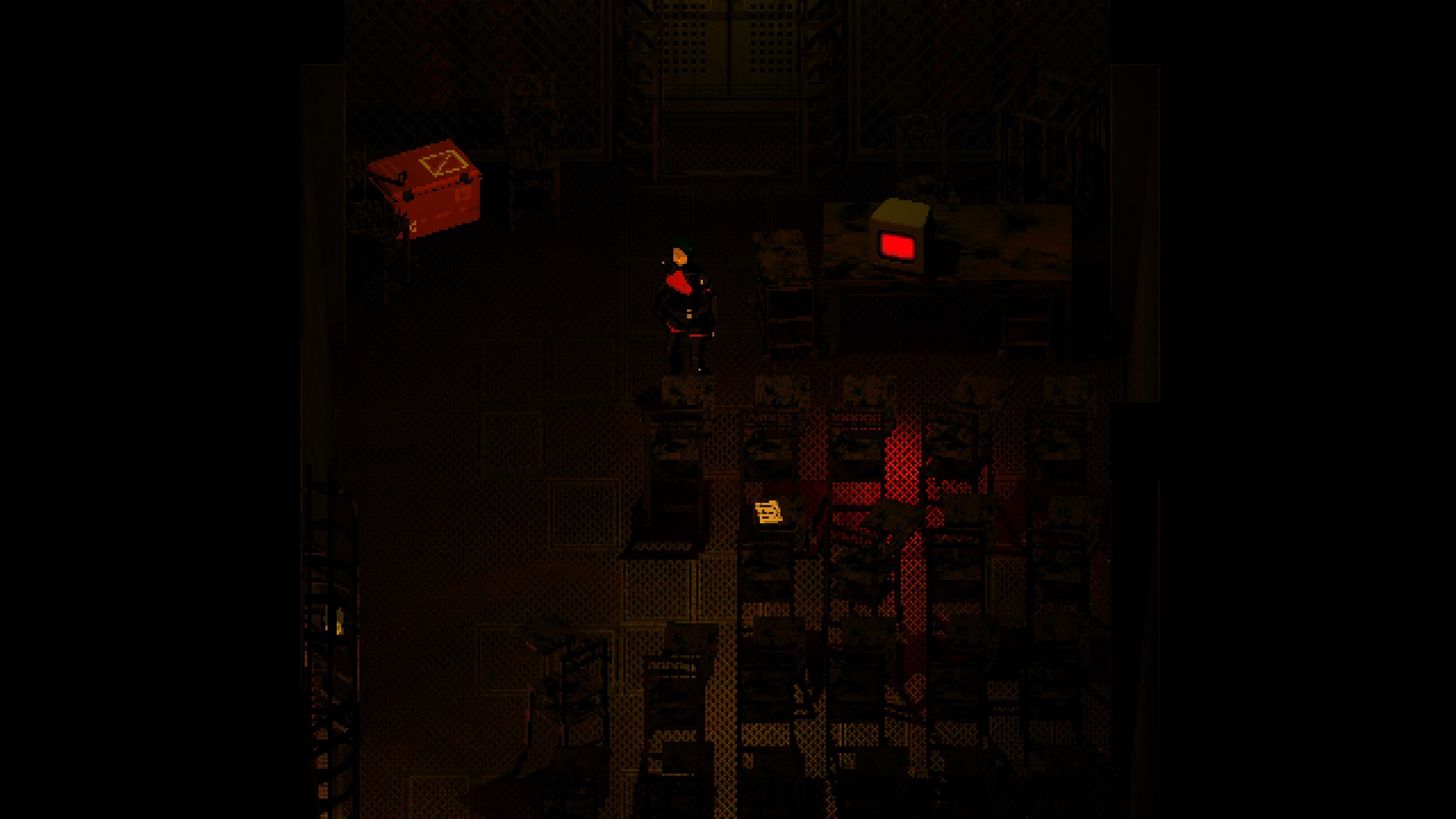
It’s under the Eusan banner that the cast struggle, and despite the sci-fi setting and many characters being man-made constructs, their stories are hauntingly human. They’re ordinary people trying to live normal lives while the gears of their cruel society threaten to grind them into dust. It would be horrifying enough without dark secrets lurking deep in distant planets and pseudo-undead androids stalking the halls. With them, it’s a rich, layered dessert of despair, lending motivation to even the most desperate character’s actions.
If it weren’t for this additional depth, I don’t think Signalis would stick the landing narratively. The moment-to-moment storytelling is intentionally fragmented. Timelines are uncertain, and while Elster’s goal is always to continue her search deeper into the facility, some elements are always vague enough to invite interpretation. It’s in these narrative gaps that the earthy, grounded world-building fits, and replaying in search of secrets and alternate endings only becomes more satisfying when revisiting old scenes with additional context.
You're not here
It’s hard to talk about Signalis without mentioning its many inspirations, which it openly and eagerly references. From nods to works of classic horror such as The King In Yellow, to sequences riffing off heavyweight anime like Ghost In The Shell and Evangelion, there’s familiar touchstones everywhere. Famous paintings and haunting classical music both ground the game’s setting in the familiar, while further accentuating its more surreal elements in how they’re used. There’s just enough of the real world here, framed strangely enough to feel like a dream.
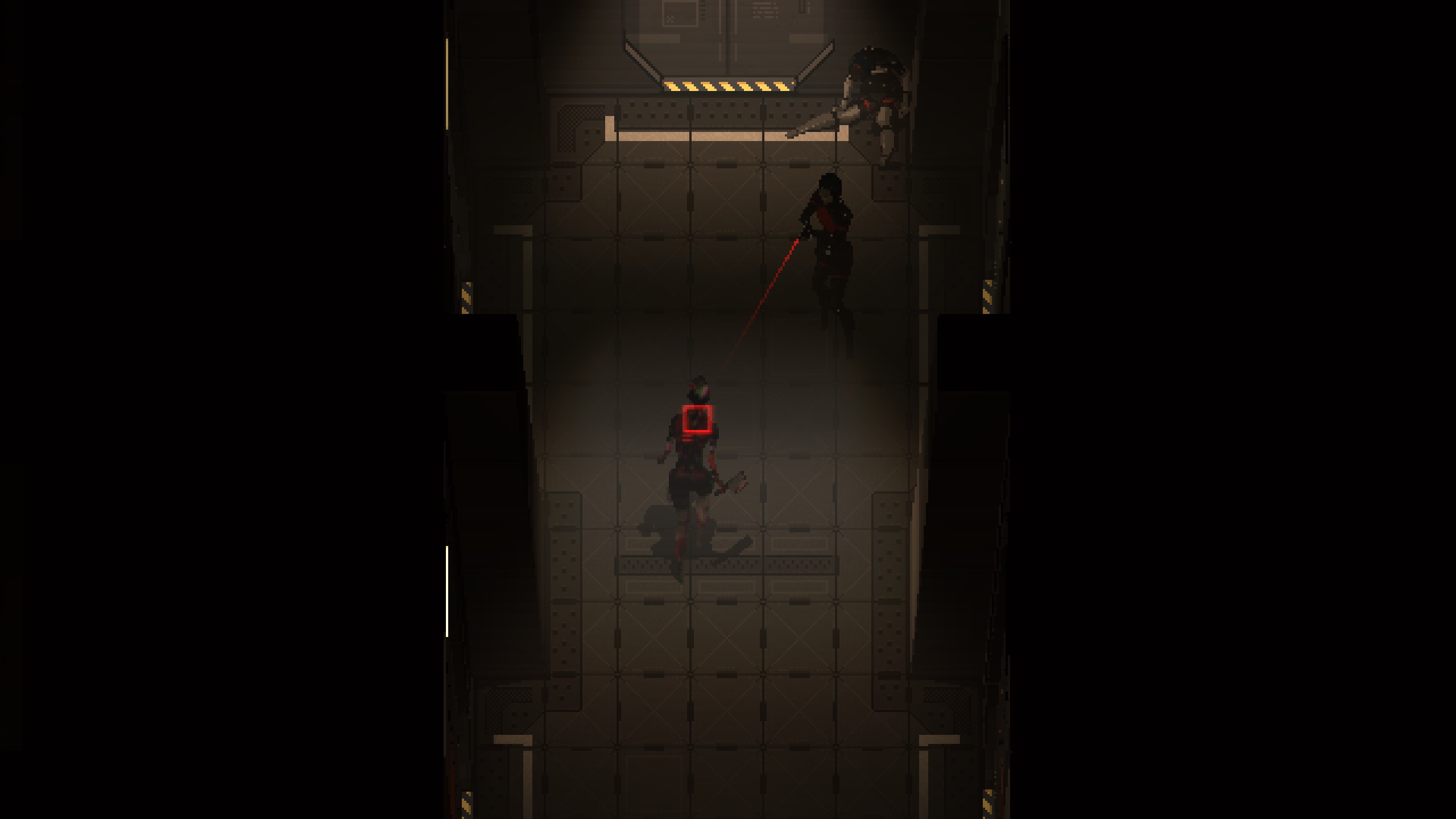
Even after completing it twice, the only real complaint I can level at Signalis is that inventory management is a little too fiddly. While you can store endless amounts in your save-room stash, Elster can only carry six items. Five, once you’re carrying around the frequently-used flashlight, and some puzzles require multiple spaces free. Leaving healing items behind and only carrying one gun can mitigate frustrations, but there will be times where you’re arbitrarily forced to backtrack through hostile hallways to store gear.
Despite this one persistent wrinkle, Signalis is one of the best horror games I’ve played in years. Tense, upsetting and thought-provoking. It takes a hundred familiar elements, inspirations and references and weaves them into something entirely new, and thoroughly worthwhile.
Tense, haunting and beautiful. Inventory shenanigans aside, one of the best survival horror games yet.

The product of a wasted youth, wasted prime and getting into wasted middle age, Dominic Tarason is a freelance writer, occasional indie PR guy and professional techno-hermit seen in many strange corners of the internet and seldom in reality. Based deep in the Welsh hinterlands where no food delivery dares to go, videogames provide a gritty, realistic escape from the idyllic views and fresh country air. If you're looking for something new and potentially very weird to play, feel free to poke him on Bluesky. He's almost sociable, most of the time.
